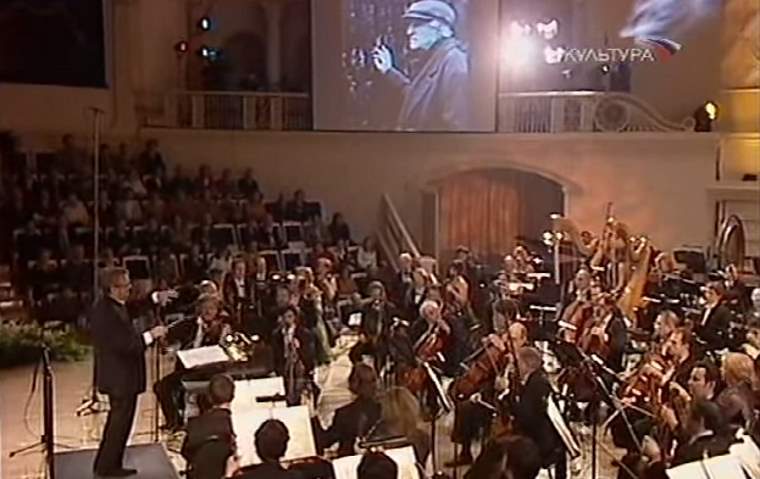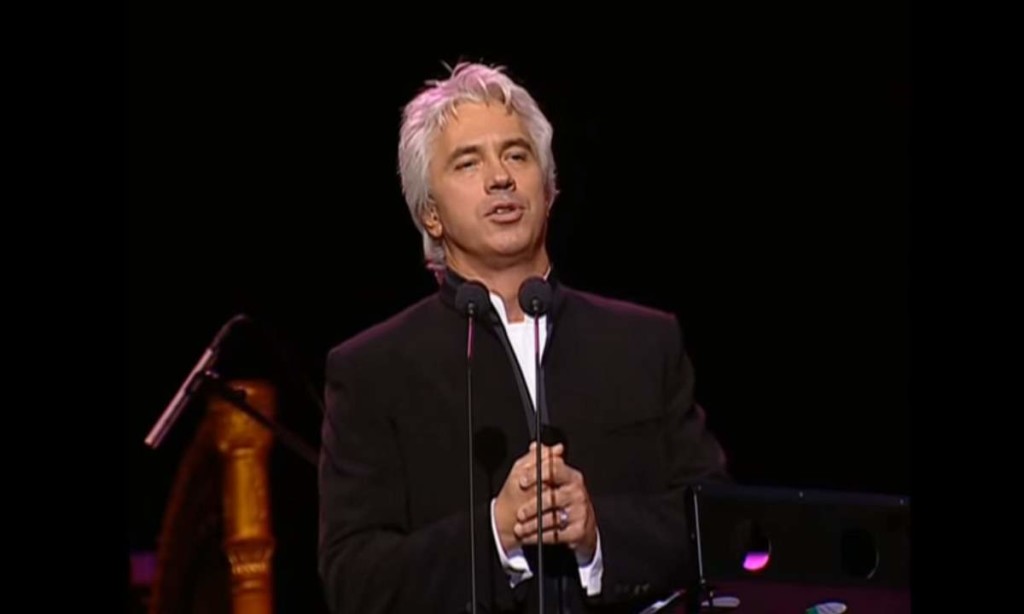Two beautiful versions of the “Polovtsian Dances” or Polovetsian Dances, from an exotic scene in Alexander Borodin’s long opera Prince Igor (premiered in 1890).
The first version, Kirov Orchestra & Chorus conducted by Valery Gergiev.
The second version, Moscow Radio Symphony Orchestra conducted by Vladimir Fedoseyev.
Polovtsian Dances
The Russian name “Половецкие пляски, Polovetskie plyaski” comes from the Russian name of ‘Polovtsy’ – the name given to the Kipchaks and Cumans by the people of Rus’.
The work remained unfinished when the composer died in 1887, although he had worked on it for more than a decade. A performing version was prepared by Nikolai Rimsky-Korsakov and Alexander Glazunov, appearing in 1890. Several other versions, or “completions,” of the opera have been made. The dances are performed with chorus.
They occur in Act I or Act II, depending on which version of the opera is being used. Their music is popular and sometimes given in concert. At such performances, the choral parts are often omitted. The opera also has a “Polovtsian March,” which opens Act III, and an overture at the start. When the dances are given in concert, a suite may be formed: Overture, Polovtsian Dances, and March from “Prince Igor.”
Russian transliteration
Ulẽtay na krïlyah vẽtra
tï v kray rodnoy, rodnaya pẽsnya nasha,
tuda, gdẽ mï tebya svobodno pẽli,
gdẽ bïlo tak privolno nam s taboyu.
Tam pod znoynïm nẽbom,
nẽgoy vozduh polon,
tam pod govor morya,
drẽmlyut gorï v oblakah,
Tam tak yarko solntsẽ svẽtit,
rodnïya gorï svẽtom zalivaya,
V dolinah pïshno rozï raztsvẽtayut
i solovĩ poyut v lẽsah zelẽnïh.
Tam roza tsvẽtõt
i sladkiy vinograd rastõt.
Tam tẽbẽ privolnẽy pẽsnya,
tï tuda i ulẽtay.
Poytẽ pẽsni slavï khanu! Poy!
Slavtẽ silu doblẽst khana! Slav!
Slavẽn Khan! Slavẽn on Khan nash!
Blẽskom slavï solntsu ravẽn khan!
Nẽtu ravnïh slavoy khanu! Nẽt!
Chagi khana, slavyat khana svoyevo.
Poytẽ pẽsni slavï khanu! Poy!
Slavtẽ shchedrost, slavtẽ milost! Slav!
Dlya vragov Khan! grozẽn on Khan nash!
Kto zhe slavoy ravẽn khanu kto?
Blẽskom slavï solntsu ravẽn on!
Slavoy dẽdam ravẽn khan nash, Ⓛ khan Konchak,
slavoy dẽdam ravẽn on! groznïy khan, khan Konchak.
Slavẽn khan, khan Konchak!
Ulẽtay na krïlyah vẽtra…
kray tot, gdẽ pod znoynïm nẽbom, …
Tam tak yarko solntsẽ svẽtit,
rodnïya gorï svẽtom ozaryaya,
V dolinah pïshno roza raztsvẽtayet
i solovĩ poyut v lẽsah zelẽnïh.
Tam roza tam v sadah tsvẽtõt,
sladkiy vinograd rastõt.
Tam tẽbẽ privolnẽy pẽsnya.
Tï tuda i ulẽtay.
Slavoy dẽdam ravẽn khan nash, Ⓢ khan Konchak,
slavoy dẽdam ravẽn on! groznïy khan, khan Konchak.
Slavẽn khan, khan Konchak!
Plyaskoy vashey tẽshtẽ khana,
Plyaskoy tẽshtẽ khana chagi, khana svoyevo.
Plyaskoy vashey tẽshtẽ khana,
Plyaskoy tẽshtẽ nash khan Konchak!3
English translation
I. [The Flowing Dance of Young Maidens]
Fly away on the wings of the wind
To our native land
0, you, our native song.
To that place where we sang to you so freely,
Where things were so idyllic for you and me.
There under the sultry sky
The air is full of bliss.
There under the murmur of the sea
The hills slumber under the clouds.
There the sun shines so brightly,
Our native hills are flooded with light,
In the valleys splendid roses bloom,
Nightingales sing in the green forests
And the sweet grape grows.
0, fly away there.
[Dance of the Savage Men] – Interlude
II. [The General Dance]
Sing songs of praise to the Khan! Sing!
Praise the courage of the Khan! Praise!
Glorious Khan! He is our glorious Khan!
With a blaze of glory equal to the sun is our Khan.
There is no one equal in glory to the Khan. None!
III. [Khan Konchak (to Igor)]
Do you see the slave-girls from a distant sea?
Do you see my pretty one from beyond the Caspian?
Only tell me, friend, only a word to me
And your favorite of these I will give you.
[Dance of the Slaves]
Prisoners of the Khan, praise the Khan!
Sing songs of praise to the Khan, Sing!
Praise his generosity, praise his kindness, Praise!
For his enemies he is terrible, our Khan!
Who can be equal in glory to the Khan? Who?
With a blaze of glory equal to the sun is he.
[Dance of the Young Boys] – Interlude
IV. [Dance of the Men]
Equal to the glory of our forefathers is our Khan,
Khan, Khan Konchak.
Glorious Khan, Khan Konchak.
[Dance of the Young Boys] – Interlude
V. [Flowing Dance of Young Maidens – reprise]
Fly away … [repeat]
[Dance of the Young Boys] – Interlude
VI. [Dance of the Men]
Equal to the glory of our forefathers is our Khan,
Khan, Khan Konchak.
The Terrible Khan Konchak.
[Dance of the Young Boys] – Interlude
VII. [Dance of the Men]
Praise the Khan, Khan Konchak.
VIII. [General Dance]
A dance for your pleasure, Khan
[repeat]
Our Khan Konchak!
Sources
- Polovtsian Dances on Wikipedia

